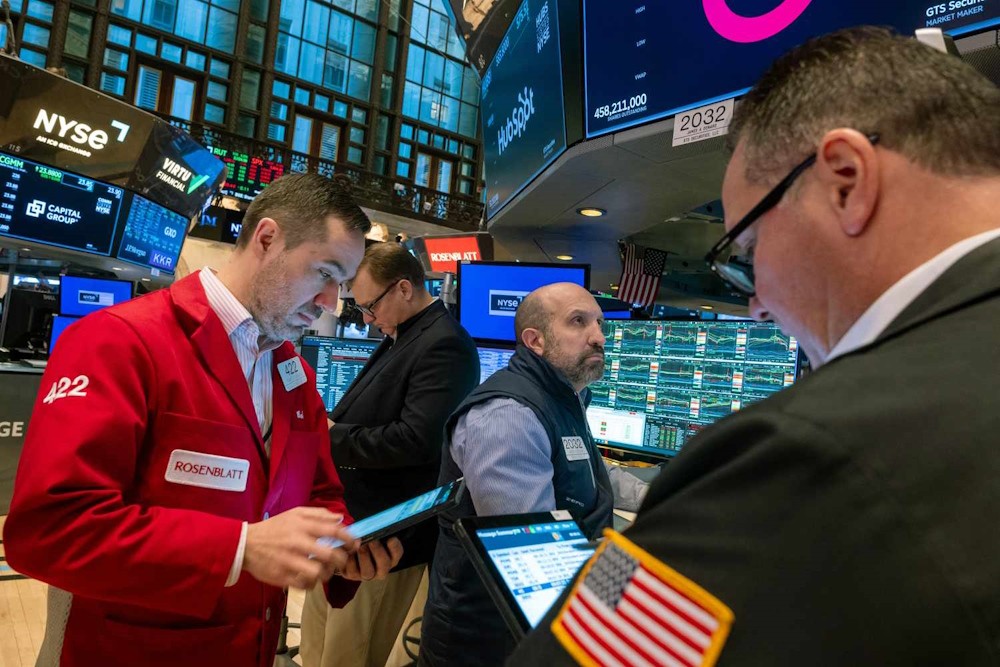
U.S. stock index futures remained stable on Wednesday evening after significant declines on Wall Street, primarily driven by Nvidia’s performance. Federal Reserve Chair Jerome Powell emphasized the potential risks associated with tariffs and indicated that the Fed is not currently considering any interest rate cuts in the near future. S&P 500 Futures showed little movement, standing at 5,303.50 points, while Nasdaq 100 Futures remained steady at 18,393.0 points as of 20:00 ET . Dow Jones Futures saw a modest increase of 0.1%, reaching 39,876.0 points.
Wall Street experienced a decline as Nvidia announced a projected $5.5 billion impact due to export restrictions from China. U.S. stocks experienced significant declines during Wednesday’s trading session, highlighted by NVIDIA Corporation’s stock, which fell nearly 7%. This downturn followed the company’s announcement of a $5.5 billion charge in the first quarter, attributed to new U.S. export restrictions on its H20 AI technology to China and other nations.The H20, tailored for the Chinese market, is now subject to export licensing under U.S. regulations, a stipulation that the U.S. government has indicated will persist indefinitely, according to Nvidia.
The Dow Jones Industrial Average finished the trading session down 1.7%, with the S&P 500 index declining by 2.2%. Meanwhile, the NASDAQ Composite experienced a notable decrease of 3.1%. Nvidia’s announcement has sent shockwaves through other major chipmakers and tech stocks. Shares of AMD experienced a decline of more than 7%, while Intel Corporation saw a decrease of 3%. Additionally, Broadcom Inc reported a loss of 2.4% in its stock value.
Analysts on Wall Street have expressed concerns that the recent announcement could exacerbate volatility in the context of the ongoing U.S.-China tariff dispute. In today’s market, shares of Apple, Microsoft, Amazon, and Meta Platforms Inc experienced a slight decline, closing modestly lower. Tesla Inc’s shares experienced a decline of nearly 5% in today’s trading session.
Federal Reserve Chair Jerome Powell indicates that interest rate cuts are not on the immediate horizon, as investors closely analyze the latest retail sales figures.
On Wednesday, Fed Chair Powell indicated that the Federal Reserve is not currently considering a reduction in interest rates. He attributed this stance to ongoing inflationary pressures and the economic uncertainties stemming from the newly implemented tariffs. “Our responsibility is to ensure that long-term inflation expectations remain stable and to prevent a temporary rise in price levels from evolving into a persistent inflation issue,” Powell stated in his prepared remarks at the Economic Club of Chicago. The Federal Reserve’s measured approach arises from apprehensions that the tariffs may result in increased consumer prices and a deceleration in economic growth. Powell emphasized the importance of adopting a wait-and-see strategy.
In a notable development, data released on Wednesday indicated that U.S. retail sales surged by 1.4% in March, building on a revised increase of 0.2% in February. This uptick is attributed to consumers increasing their vehicle purchases in anticipation of forthcoming tariffs. Retail sales experienced a significant increase as consumers accelerated their purchases of high-value items in anticipation of potential tariffs. ING analysts noted that with confidence declining due to concerns over prices, jobs, and wealth, consumer spending is expected to be a diminished growth driver later in the year.
